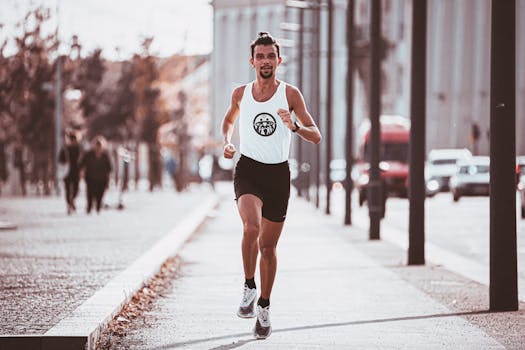The Role of High-Intensity Interval Training in Slowing Aging
Unlocking the secrets to a longer, healthier life might be as simple as stepping up the tempo in your fitness routine. High-Intensity Interval Training (HIIT) has been making waves in the realm of health and fitness, not only for its efficiency but also for its potential role in slowing down the aging process. This engaging exploration delves into the latest research that highlights the profound impact of HIIT on our body's cellular function, longevity, and overall vitality.

It's time to sweat out the old and usher in a youthful vigor with an invigorating twist to your workout regime.
High-Intensity Interval Training, or HIIT, is a form of exercise that involves short bursts of intense activity followed by periods of lower-intensity exercise or rest. This alternating pattern of high and low intensity has been shown to boost metabolism, improve cardiovascular health, and promote fat loss more effectively than traditional steady-state cardio. But the benefits of HIIT don't stop there. Recent studies suggest that this form of training could also play a significant role in slowing down the aging process.
The science behind this lies in our cells. Each cell in our body contains structures called mitochondria, often referred to as the powerhouses of the cell. They are responsible for producing energy and keeping our cells functioning optimally. As we age, however, mitochondrial function tends to decline, leading to a host of age-related issues such as decreased energy levels, impaired cognitive function, and increased susceptibility to disease.
Research has shown that HIIT can stimulate mitochondrial biogenesis – the process by which new mitochondria are formed in the cells. This not only increases energy production but also enhances cellular health and function. By boosting mitochondrial biogenesis, HIIT may help to counteract some of the negative effects of aging at a cellular level.
Moreover, HIIT has been found to improve insulin sensitivity, reduce inflammation, and enhance brain function – all factors that play a crucial role in aging. Improved insulin sensitivity can help to prevent the onset of age-related diseases such as type 2 diabetes, while reduced inflammation can slow down the aging process by protecting against cellular damage. Enhanced brain function, on the other hand, can help to maintain cognitive health and prevent age-related cognitive decline.
While the benefits of HIIT are clear, it's important to note that this form of training may not be suitable for everyone. High-intensity exercise can be challenging for those who are new to exercise or have certain health conditions. It's always recommended to consult with a healthcare professional before starting any new fitness regime.
The role of High-Intensity Interval Training in slowing aging is a fascinating area of research that holds great promise for promoting longevity and vitality. By incorporating HIIT into our fitness routines, we may not only improve our physical health but also potentially slow down the aging process at a cellular level.
In the realm of health and fitness, HIIT stands out as a powerful tool that goes beyond just burning calories and building muscle. Its potential impact on cellular function and longevity adds a new dimension to our understanding of exercise and its role in healthy aging. As we continue to explore this exciting field, it's clear that HIIT could play a pivotal role in helping us lead longer, healthier lives.
The potential of High-Intensity Interval Training to slow down aging is an exciting prospect that could revolutionize our approach to fitness and health. While more research is needed to fully understand the mechanisms behind this phenomenon, the current evidence suggests that HIIT could be a valuable tool in our quest for longevity. By challenging our bodies in new ways, we can stimulate cellular renewal, boost energy production, and potentially slow down the aging process. It's time to embrace the power of high-intensity interval training and unlock a new level of vitality and longevity.